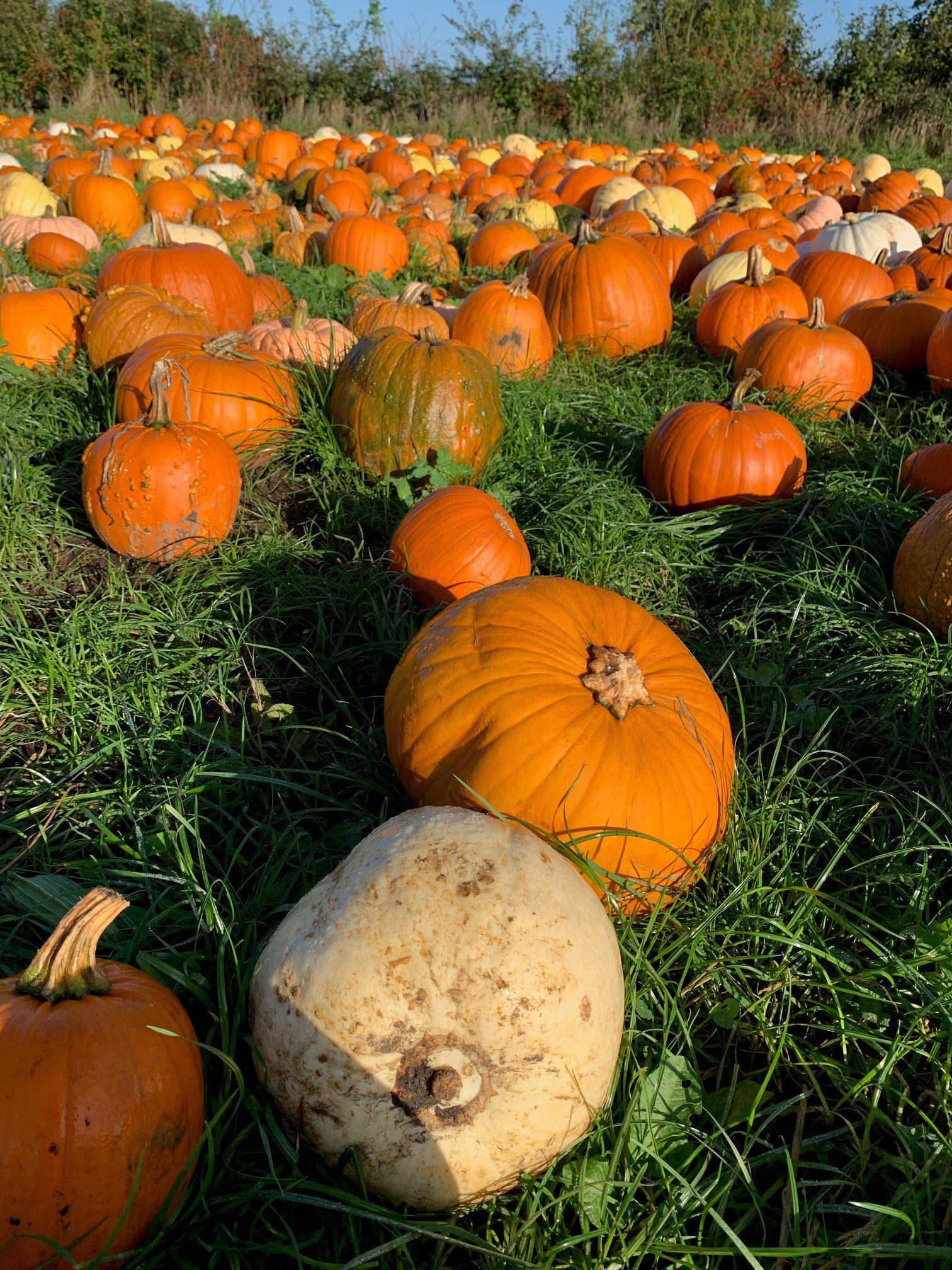The Rise of the Pumpkin Patch
- Education
- -
SUMMARY
- We may love pumpkin carving as a nation, but the flesh is often wasted
- Pumpkin recipes are a great way to ensure you use all of the pumpkin
- If you don't let your pumpkin rot, there are other options including donating to zoos
- Proper pumpkin disposal is important; pumpkins ending up in landfill will often not decompose properly
The Pick of the Patch
There are 82 pumpkin patches across the UK, with the largest ones producing between 600,000 (Tulleys Farm, West Sussex) and a whopping one million (Bell’s Pumpkin Patch, Lincolnshire) pumpkins this year. That’s a lot of Jack-O-Lanterns!
And when you consider that a good chunk of pumpkins are used for display: pumpkin houses, pumpkin murals, photo booths, you start to wonder how many actually end up being used, and how many are wasted?
According to Love Food Hate Waste, 12.8 million pumpkins bought for decoration during Halloween are likely to be left uneaten, and around 67% of UK families throw away at least one pumpkin each!
In order to make a positive change to these statistics, we must find ways to use the vitamin-rich flesh of our Halloween pumpkins, and there are so many delicious recipes to choose from, starting with these from Love Food Hate Waste!
An Autumn Food Superstar
As well as being a great seasonal flavour, pumpkins are so versatile, from seasonal savouries to sweet treats! The fact that the same earthy flavour we can make cosy soups with is also Starbucks’ No1 sweet coffee flavour, says a lot. Other veg can only dream of being as versatile as the humble pumpkin!
And the British public agrees; Tesco said that last year there was a tenfold increase in people searching for pumpkin recipes from September to October on its Tesco Real Food website.
"It’s good news, from a food waste point of view… so nothing should go to waste."
The key when it comes to picking a pumpkin for eating is in the size; smaller is sweeter! So as a rule of thumb, the bigger the pumpkin, the less tasty they’re going to be. Although if you’re looking to roast some pumpkin seeds, those big ones might be exactly what you need.
Another thing to consider is the timing of when you carve it. Instead of carving it straight away, leave it up as seasonal decoration until you’re ready to feast! By leaving it as close as possible to Halloween, you also might be able to donate your Jack-O-Lantern to local zoos and animal shelters that accept pumpkins for feed. After all, why let them rot when you could make a monkey’s day!
Farm Favourites
One of the best parts of visiting a pumpkin patch is connecting to local agriculture. You’re not just participating in some fun memory-making; you’re actively supporting your local farmers and rural communities. This direct farm-to-table experience is such a family-friendly alternative to the supermarket pumpkin purchase, and we’re big fans of that!
But the pumpkins that never make it home, the ones that get left at the patch? What happens to them?
Well, they get fed to the farm animals. Cows, pigs, horses, and even turkeys enjoy a pumpkin!
Countryside Online spoke to some of the biggest pumpkin farmers in the country about what they do with any unsold pumpkins:
“Pumpkins that aren’t suitable to sell, and any unsold pumpkins get fed to the farm animals. The turkeys particularly enjoy pecking them and chasing them around the turkey paddock – they are good at keeping them entertained. My horse also enjoys them as a treat.”
Pound Farm
It’s important to note that you’re not allowed to give any pumpkins you’ve already carved to livestock in the UK, but farm fresh is the perfect treat.
Disposing Of Your Pumpkins
Pumpkins that have already degraded too much to feed to animals are perfect for composting; because they’re mostly water and fibre, they’re a great way to add nitrogen and water into your compost. Just make sure to scrape off any candle wax!
It’s important to make sure pumpkins reach composting/proper waste disposal facilities; if just left to decompose outside, they create mini microhabitats that are not healthy and end up full of mould; not great for the environment or any animals that may come across them.
Landfill sites aren’t great either, the amount of methane a decomposing pumpkin produces, let alone a big pit of them, is so bad for the environment. So whatever you do, don’t pop your pumpkin in your general waste bin!
Pumpkin farmers who have large-scale waste will partner with proper food waste facilities to make sure their pumpkins are disposed of properly. Our own anaerobic digestion process means they can be repurposed to do some good also; turning pumpkin waste into energy which can then go back into the national grid!
Pumpkins aren’t just for Halloween
No other vegetable would we dream of wasting in the same way as the poor pumpkin. While the rise of pumpkin patches across the country certainly contributes to the colossal amount of waste that is generated, they definitely do brilliant things for the community, too. So the onus is on us to pumpkin pick responsibly! Pick a pumpkin and pick an Autumnal recipe at the same time; all it takes is for us to add a little extra into our family traditions.
One little change can make all the difference, and 15.8 million pumpkins are relying on us! So, who fancies a slice of spiced pumpkin and toffee apple cake?

Need more pumpkinspiration?
For other ideas on how to use up your excess pumpkin, we’ve got even more pumpkin recycling ideas here.



